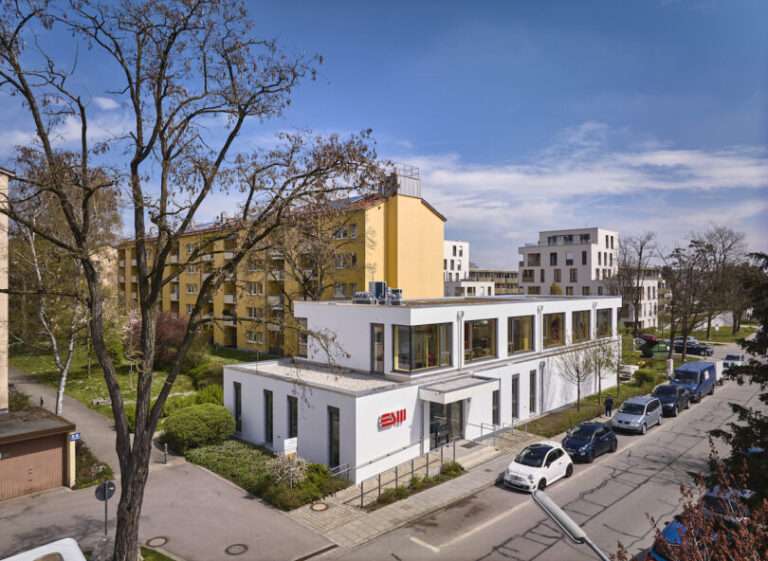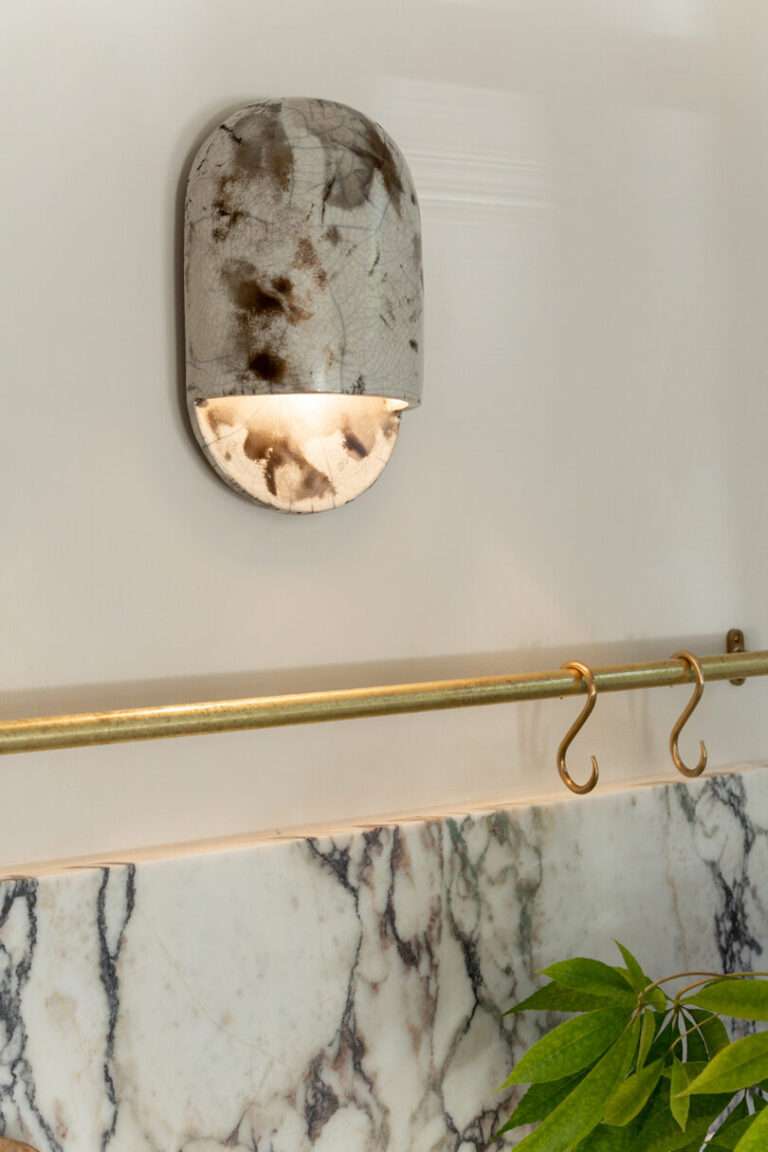In today’s world of innovative landscaping and sustainable design, the modern concrete and grass driveway stands out as a prime example of the aesthetic appeal meeting environmental consciousness. This harmonious blend of sturdy concrete and lush greenery not only enhances curb appeal but also offers a myriad of practical benefits. By integrating permeable surfaces that allow for better water drainage and reducing the heat island effect commonly associated with traditional asphalt, these driveways present a forward-thinking solution for homeowners.
As we delve deeper into the advantages and design possibilities of modern concrete and grass driveways, it becomes evident that this trend is more than just a fleeting fad—it’s a step towards a more sustainable and visually pleasing future.
The Appeal of a Modern Concrete and Grass Driveway
Modern concrete and grass driveways are a blend of hardscape and softscape elements, creating a visually appealing and eco-friendly solution. The combination of concrete’s durability and grass’s natural beauty results in a unique driveway that stands out. These driveways can be customized in various patterns and designs, allowing homeowners to express their personal style while enhancing curb appeal.
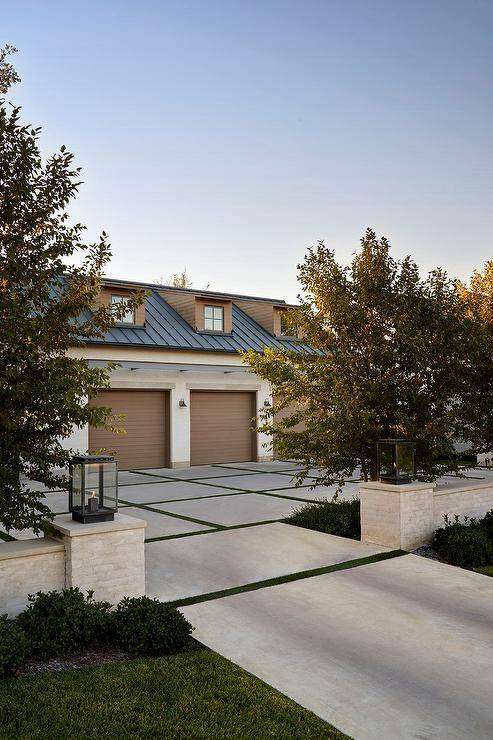
This type of driveway is an excellent way to integrate green space into urban environments. By incorporating grass, homeowners can reduce the heat island effect commonly associated with large concrete surfaces, making their properties cooler and more comfortable.
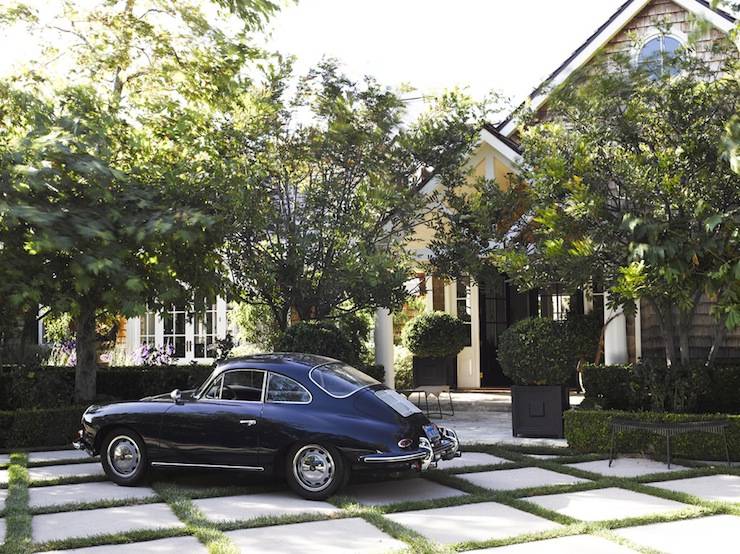

Environmental Benefits of Concrete and Grass Driveways
One of the most significant advantages of concrete and grass driveways is their positive impact on the environment. Traditional concrete driveways can contribute to stormwater runoff, leading to soil erosion and water pollution. However, the permeable nature of grass allows rainwater to seep into the ground, replenishing groundwater supplies and reducing runoff.
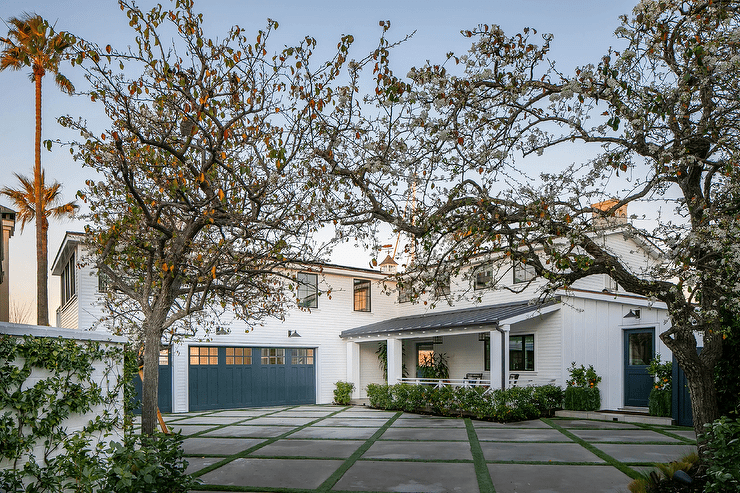
The grass component helps in reducing carbon dioxide levels and improving air quality. Grass absorbs carbon dioxide and releases oxygen, contributing to a healthier environment.
Installation Process of Concrete and Grass Driveways
Installing a concrete and grass driveway requires careful planning and execution. Here are the basic steps involved:
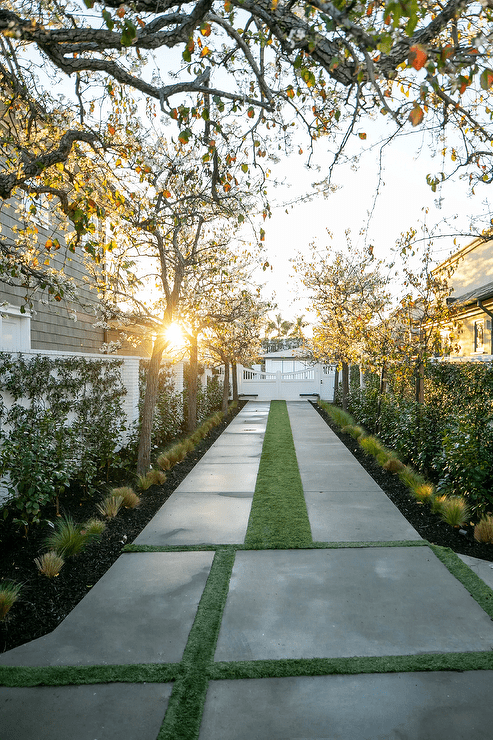
- Design and Layout: Begin by designing the driveway layout, considering the pattern and spacing of concrete and grass. Popular patterns include checkerboard, linear, and random placements.
- Excavation and Base Preparation: Excavate the area to the desired depth, ensuring a stable base. A mix of gravel and sand is typically used to create a solid foundation.
- Concrete Pouring: Pour concrete into the prepared layout, leaving gaps for the grass. Ensure proper leveling and finishing for a smooth surface.
- Grass Installation: Once the concrete has cured, plant grass in the gaps. Choose a grass variety that suits your climate and maintenance preferences.
- Watering and Maintenance: Water the grass regularly until it is well-established. Periodic maintenance, such as mowing and fertilizing, will keep the grass healthy and the driveway looking pristine.
Maintenance Tips for Concrete and Grass Driveways
Maintaining a concrete and grass driveway involves both hardscape and landscape care. Here are some tips to ensure its longevity and beauty:
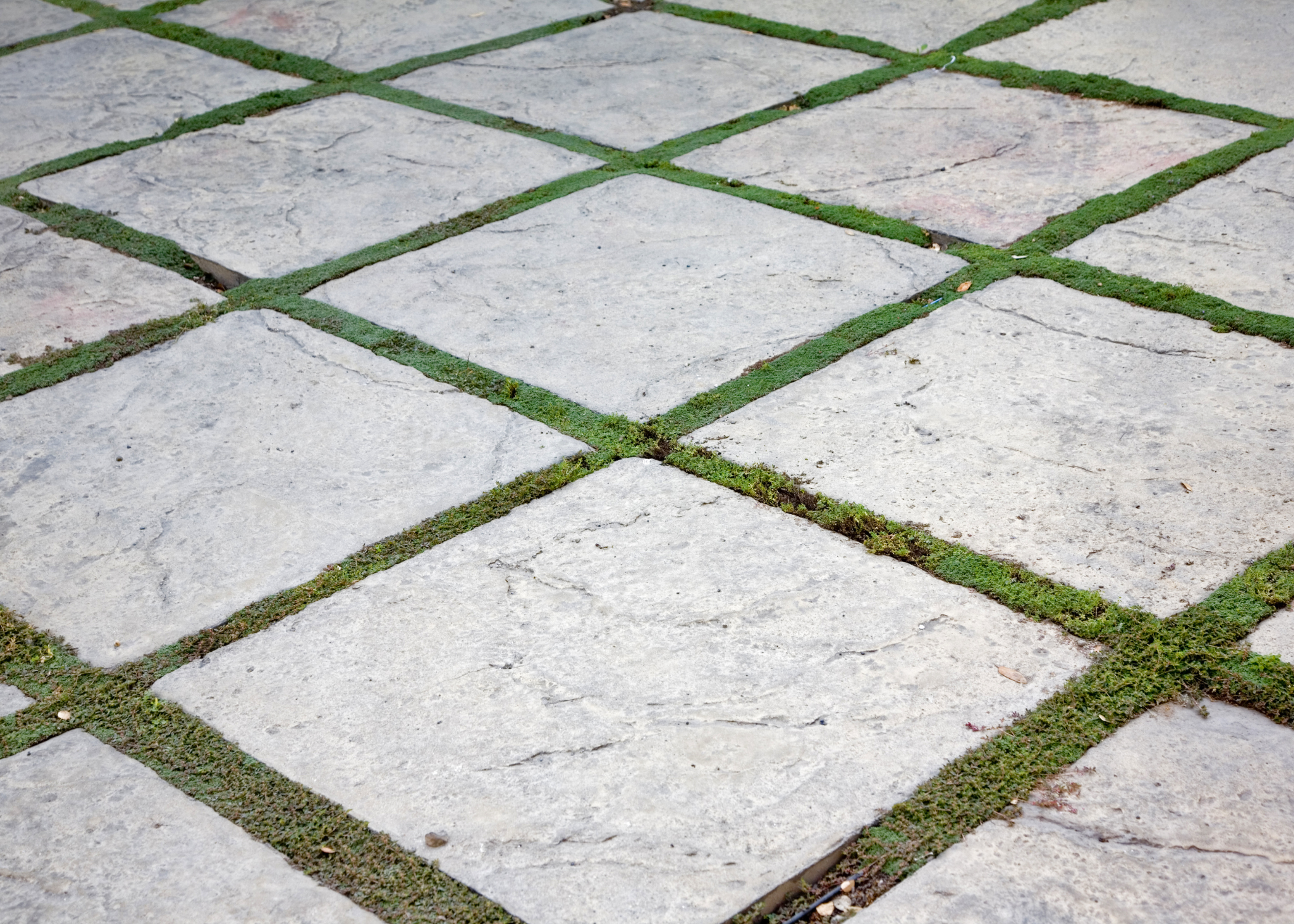
- Regular Cleaning: Sweep the concrete sections to remove debris and prevent staining. Power washing can be used for a deeper clean.
- Grass Care: Mow the grass regularly to maintain a neat appearance. Depending on the grass type, water and fertilize as needed.
- Weed Control: Keep an eye out for weeds that may grow between the concrete and grass. Use appropriate weed control methods to prevent them from spreading.
- Repairs: Address any cracks or damage to the concrete promptly to prevent further deterioration. Reseed any bare or thin grass patches to maintain a lush look.
Related Articles
Creating the perfect modern concrete and grass driveway transforms your home’s curb appeal, combining beauty and practicality. Embrace the blend of sleek concrete and lush grass for a driveway that stands out. Start your design journey today and watch your vision come to life!
Ready to bring new life to your home? Subscribe to our newsletter for exclusive interior design tips, trends, and ideas that will transform your space. Click here to subscribe!
Frequently Asked Questions (FAQs)
Can I install a concrete and grass driveway myself?
While it’s possible to DIY, professional installation is recommended to ensure proper design, drainage, and durability.
What grass type is best for driveways?
Choose a hardy, low-maintenance variety such as Bermuda grass or fescue, which can withstand foot traffic and require less water.
How do I prevent weeds in my driveway?
Use a pre-emergent herbicide and maintain regular weed control practices such as pulling or spot-treating weeds.
Is a concrete and grass driveway more expensive than a traditional concrete driveway?
The design and materials may raise the initial costs, but long-term savings on stormwater management and environmental benefits can offset these costs.
Can I use artificial grass instead of natural grass?
Yes, artificial grass can be used as a low-maintenance option, but it does not offer the same environmental benefits as natural grass.
How do I handle drainage issues?
Proper installation with a well-designed base will address drainage issues. Permeable pavers and gravel layers can also help manage water flow.
Will the concrete crack over time?
Like any concrete surface, there is a risk of cracking. Using high-quality materials and following proper installation techniques can minimize this risk.


